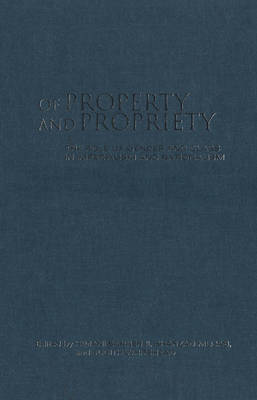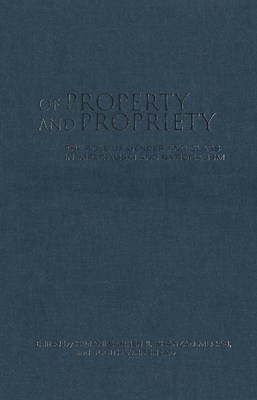
- Afhalen na 1 uur in een winkel met voorraad
- Gratis thuislevering in België vanaf € 30
- Ruim aanbod met 7 miljoen producten
- Afhalen na 1 uur in een winkel met voorraad
- Gratis thuislevering in België vanaf € 30
- Ruim aanbod met 7 miljoen producten
Of Property and Propriety
The Role of Gender and Class in Imperialism and Nationalism
Omschrijving
Unique in its approach, this collection of essays examines property relations, moral regulations pertaining to gender, and nationalism in India, Kurdistan, Ireland, and Finland. Structured around six case studies, the contributors combine an analysis of gender with a dialectical examination of class and patriarchy to reveal how these relations have become constructed in recent nationalist movements.
Offering an alternative to post-colonial and post-structuralist formulations of gender and nationalism, the volume highlights the connections and convergences in matters of property, propriety, and gender among ideologically similar nationalist movements, and shows how ideological similarities and differences need to be understood prior to analysing the gender symbolism and patriarchal relations of nationalist histories.
Specificaties
Betrokkenen
- Uitgeverij:
Inhoud
- Aantal bladzijden:
- 240
- Taal:
- Engels
- Reeks:
Eigenschappen
- Productcode (EAN):
- 9780802081926
- Verschijningsdatum:
- 8/09/2001
- Uitvoering:
- Paperback
- Formaat:
- Trade paperback (VS)
- Afmetingen:
- 153 mm x 233 mm
- Gewicht:
- 390 g

Alleen bij Standaard Boekhandel
Beoordelingen
We publiceren alleen reviews die voldoen aan de voorwaarden voor reviews. Bekijk onze voorwaarden voor reviews.










